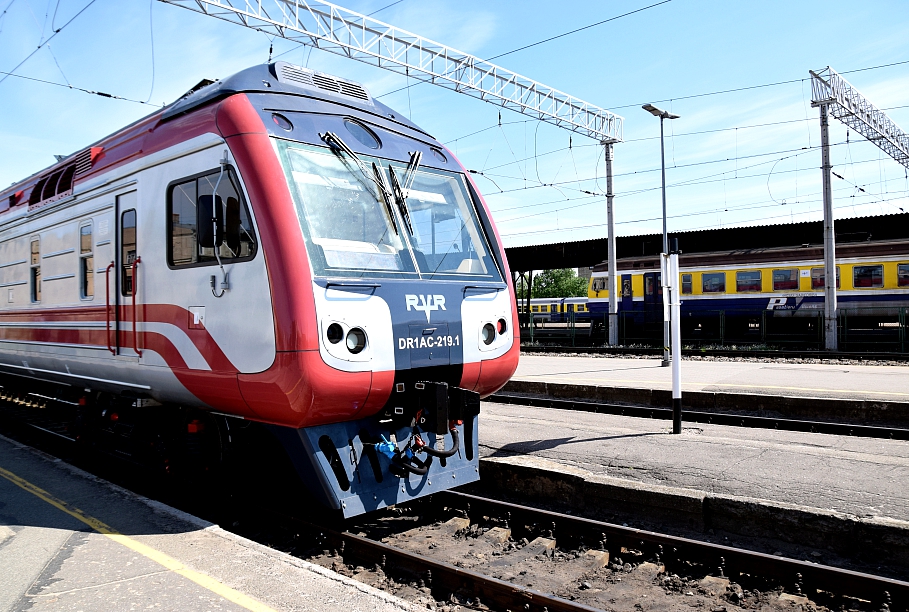Furthermore, there is doubt over the quality and operational costs of these trains, and court battles over penalties applied to DMU Vilcieni could potentially ensue, reported LTV's De Facto Sunday.
Dozens of repairs carried out already
The trains, 19 in total, have undergone 57 repairs under a guarantee since the first of them were delivered in summer. In two of the cases, the trains had to stop midway to their destination.
"Sometimes [the maintenance] is related to programming that doesn't work properly when the client calls – that falls under guaranteed maintenance as well. At other times it requires one to two hours," DMU Vilcieni representative Garis Kamarūts told De Facto.
The two cases when the trains had to be stopped were purportedly due to errors to which train drivers did not react properly. However as these cases have been rather resonant the Finance Ministry has asked the Transport Ministry to review them prior to transferring funds from the Cohesion Fund by October 21.
"It is then that we as the managing institution will review the Transport Ministry conclusion that the project has been fully realized and decide whether public funding should be granted," said Diāna Rancāne, director at the Finance Ministry's EU Funds Monitoring Department.
Minister calls project a failed experiment
The modernization project was started three years ago as the country rushed to utilize available EU funds.
Only one company - DMU Vilcieni - applied as the work was complex and the deadlines were short. The project was concluded a year after the initial September 2015 deadline.
"The scenario chosen by the client was not particularly successful – the single order included the project, the prototype, certification and manufacture. [It was] a very large contract," said Kamarūts.
Had the project been finished in time, Passenger Rail would have received €15m from the Cohesion Fund, however potential funding has decreased to €10m due to missed deadlines.
Transport Minister Uldis Augulis - who assumed the post in February 2016 - called the project a failed experiment.
Concerns over the trains' efficiency
DMU Vilcieni is a partnership of three companies - the Rīgas Vagonbūves rūpnīca, which carried out €9m worth of the project; the Daugavpils Lokomotīvju Remonta Rūpnīca, controlled by Estonian millionaire Oleg Ossinovski who's suspected of bribery; and VRC Zasulauks, co-owned by Rīgas Vagonbūves rūpnīca and Passenger Rail.
The tender didn't include running costs, but rather only the cost of modernizing the trains.
"Sadly the tender includes only one thing – the price. If it would have been written there that [running] costs for a kilometer, what's the maximum upper limit [..]. We don't have this criterion," said Passenger Rail board chairman Andris Lubāns.
A conflict brewing between the companies
The final payment over the work should be done next week, however prior to receiving the money DMU Vilcieni have to provide a €1.1m bank guarantee for ensuring future repairs.
Passenger Rail plans to deduct €2.2m - the maximum penalty in the agreement - for missed deadlines. However DMU Vilcieni plans to contest this, claiming it had no responsibility for some of the delays.
"At the moment we think that the discussion is not over," said Kamarūts, adding that the company could potentially go to court over the issue.
At the moment DMU Vilcieni owes the state €0.511m in value-added tax and Rīgas Vagonbūves rūpnīca owes €0.605m. Kamarūts told De Facto that the company will pay its tax debt when it receives payment for the delivered trains and has asked the State Revenue Service to postpone.





























